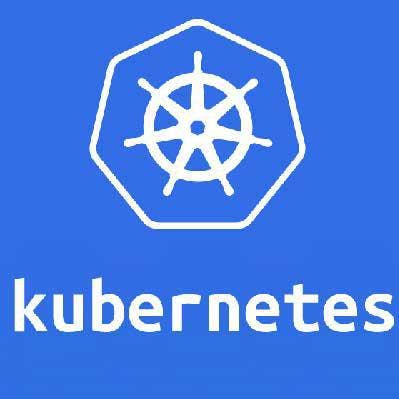The 10 Hottest Kubernetes Startups Of 2022 (So Far)
Here are 10 Kubernetes startups looking to stand out in this key slice of a container management that market research firm Gartner said is growing 34 percent annually and could reach $944 million by 2024.

No Slowing Down The Kubernetes Wave
Kubernetes burst onto the IT developer scene in 2014 when Google released it as an open-source version of its Borg technology it developed as a way to run thousands of jobs and applications across multiple clusters and machines. Since then, the technology has spread far and wide. It is a key part of managing applications and data via containers, a market that research firm Gartner in mid-2020 projected would reach $944 million by 2024, with a compound annual growth rate of 34 percent.
The popularity of Kubernetes has led to some of the early leaders being acquired by larger vendors looking to add containers to their application management or data protection capabilities. For example, VMware in May 2020 acquired Octarine, a Kubernetes security startup. Pure Storage in September 2020 acquired Portworx, at the time the leading developer of Kubernetes-focused end-to-end storage and data management technologies. Veeam less than one month later acquired Kasten, a leading developer of Kubernetes-focused data protection.
Last year saw IBM acquire StackRox, which develops Kubernetes security technology, and BoxBoat, a DevOps and Kubernetes startup.
The year also saw Rapid7 acquire Kubernetes security startup Alcide, Microsoft acquire Kubernetes tool developer Deis, Cisco acquire Kubernetes governance and cost-management startup Replex, and DataCore acquire Kubernetes storage developer MayaData.
However, every acquisition of a startup developer in a hot market like containers, particularly related to Kubernetes, seems to convince entrepreneurs that there are as-of-yet untapped opportunities in the business. So far, there seems to be no letup in the number of Kubernetes-related developers entering the business.
CRN looks at 10 startups looking to fill in the gaps in the Kubernetes ecosystem caused either by the departure of a slightly older startup that either found an exit through an acquisition or found that investing its resources in other areas is a better plan. Despite the acquisitions, startups are moving in to fill any gaps in the Kubernetes ecosystem.
* ARMO
* Komodor
* Ondat

ARMO
Co-Founder, CEO: Shauli Rozen
Headquarters: Jerusalem, Israel
Website: https://www.armosec.io/
ARMO is building technology to provide developer security for Kubernetes containers from development to production and from configuration to runtime.
ARMO has patented technology and tools it said fit natively within the CI/CD (continuous integration and continuous delivery or development) pipeline and existing development tools to help assure DevOps, DevSecOps, and developers that their Kubernetes clusters, containers and microservices are continually secure. The ARMO technology scans clusters, nodes and API servers for misconfigurations and configuration drifts to help find risks and Kubernetes resource fails and recommends fixes. It also scans container images for vulnerabilities and prioritizes which vulnerabilities need to be patched first.
ARMO exited stealth in October 2021 with $4.5 million in seed funding and in April 2022 closed a $30 million round of funding.

ContainIQ
Co-Founders, CEOs: Nate Matherson, Matt Lenhard
Headquarters: Hoboken, N.J.
Website: https://www.containiq.com/
ContainIQ develops out-of-the-box Kubernetes-native monitoring and tracing with its prebuilt dashboards and monitors. A one-line install of the technology provides users with a comprehensive set of tools that require no configuration or ongoing maintenance. The technology provides metrics that look at CPU and memory for pods and nodes to show their limits, capacity and correlations to events and allows alerts to be set. It also collects log data from internal applications and Kubernetes system components, traces incoming and outgoing HTTP requests and metadata, and monitors latencies.
ContainIQ exited stealth in October 2021 with $2.5 million in seed funding.

Fairwinds Ops
CEO: Bill Ledingham
Headquarters: Boston
Website: https://www.fairwinds.com/
Fairwinds Ops was launched in 2015 as ReactiveOps before changing its name in 2019 when it was acquired by its current owners and given a new infusion of cash. The company in 2019 launched its Fairwinds Insights technology to provide security, compliance and guardrails against misconfiguration in Kubernetes environments, all with a goal of helping developers quickly ship applications while providing them a safety net. Fairwinds Insights provides Kubernetes workload, node and cluster cost optimization, along with resource recommendations, spending tracking and AWS billing integration. Developers also get governance capabilities to ensure policies are met, as well as a full range of infrastructure-as-code scanning and container vulnerability scanning.

Isovalent
Co-Founder, CEO: Dan Wendlandt
Headquarters: Cupertino, Calif.
Website: https://isovalent.com/
Isovalent is the developer of Isovalent Cilium Enterprise that enables cloud-native networking, security and observability based on eBPF (extended Berkeley Packet Filter), an open-source technology that provides observability, security controls, network security, load balancing, behavioral security and other capabilities to applications running in the Linux kernel. Cilium Enterprise allows SIEM integration with Kubernetes clusters, provides load balancing and connecting of Kubernetes clusters, and provides multitenant self-service access to connectivity data associated with Kubernetes workloads.
Isovalent was founded in 2017 and counts Google and Cisco Systems as strategic investors.

Komodor
Co-Founder, CEO: Ben Ofiri
Headquarters: Tel Aviv-Yafo, Israel
Website: https://komodor.com/
Komodor is a developer of a troubleshooting platform for Kubernetes. The company’s automated technology monitors a company’s entire Kubernetes stack, identifies issues, uncovers the root cause of those issues and delivers the context needed to troubleshoot them. It includes automated playbooks for every Kubernetes resource, as well as static-prevention monitors that to help enrich live and historical data with contextual insight to help businesses enforce best practices and stop incidents.
Komodor was founded in mid-2020 and came out of stealth in early 2021. It has closed two funding rounds totaling $67 million.

Loft Labs
Co-Founder, CEO: Lukas Gentele
Headquarters: San Francisco
Website: https://loft.sh/
Loft Labs, founded in 2019, develops Loft, which is technology to let businesses scale self-service access to Kubernetes from 10 to 10,000 engineers. The company has created several open-source projects to support this mission, including DevSpace, vcluster, jsPolicy and kiosk. Loft ties these open-source projects together into a single Kubernetes platform that can be used to offer engineers secure and unimpeded access to cloud resources and help ease the switch toward cloud-native engineering practices. Loft provides enterprise-grade cluster access and management, secure multitenancy, collaboration and cost optimization.
Loft Labs in September 2021 raised $4.6 million in seed funding.

Ondat
Co-Founder, CEO: Alex Chircop
Headquarters: London
Website: https://www.ondat.io/
Ondat was founded in 2015 as StorageOS but in 2021 rebranded to Ondat in response to the recognition of the increasing importance of developers and the need for stateful applications. The company provides a software-defined cloud-native block storage platform for running containerized production applications in the cloud, on-premises, and in hybrid-cloud and multi-cloud environments. Ondat’s technology powers Kubernetes persistent storage to let businesses run stateful applications with storage services including data reduction, storage pooling, replication for HA, agile scaling and block check sums on any infrastructure, and scales with application demand.
Ondat closed a B round of funding worth $10 million in early 2021, bringing total funding to $20 million.

Portainer
Co-Founder, CEO, CTO: Neil Cresswell
Headquarters: Auckland, New Zealand
Website: https://www.portainer.io/
Portainer develops technology aimed at quickly configuring, monitoring and securing containers with built-in support for Docker, Kubernetes, Swarm and Nomad on any cloud or device or in any data center. It works with all flavors of Kubernetes, either self-hosted or managed, and includes a user interface that allows users to manage, monitor and maintain every aspect of their environments without the need to write Kubernetes-specific code. Portainer enforces what it calls “sane” defaults to ensure deployed applications are safe and secure and includes a rules and validation engine to make sure the applications work within Kubernetes constraints.
Portainer in April 2021 closed a $6 million A-round of funding, bringing total funding in the company to $7.2 million.

Rafay Systems
Co-Founder, CEO: Haseeb Budhani
Headquarters: Sunnyvale, Calif.
Website: https://rafay.co/
Rafay was designed to let enterprises use any Kubernetes distribution and get centralized automation, security, visibility and governance capabilities for Kubernetes cluster and application life-cycle management across public clouds and remote or edge locations. The company provides a single cloud controller that can manage hundreds of clusters while allowing software-defined isolation across any department, business group or geography. Rafay said its service operates at 99.99 percent uptime governed by an SLA and is SOC 2 Type 2 certified. A self-managed version is also available.
Rafay in August 2021 closed a B round of funding worth $25 million, bringing its total funding to $33 million.

Stackwatch
Co-Founder, CEO: Webb Brown
Headquarters: San Francisco
Website: https://www.kubecost.com/
Stackwatch is a developer of technology based on Kubecost, an open-source project started in 2019 to help engineers get spending and resource visibility into Kubernetes environments. Kubecost provides insight into the allocated spend across all native Kubernetes concepts and breaks down costs by namespace, deployment, service and more across any major cloud provider or on-premises Kubernetes environment. It also provides unified cost monitoring including in-cluster costs like CPU and memory for cloud services from AWS, Google Cloud Platform and Microsoft Azure.
Kubecost in February closed it’s a round of funding, which netted it $25 million. Prior to that, it closed a seed funding round of $5.5 million.